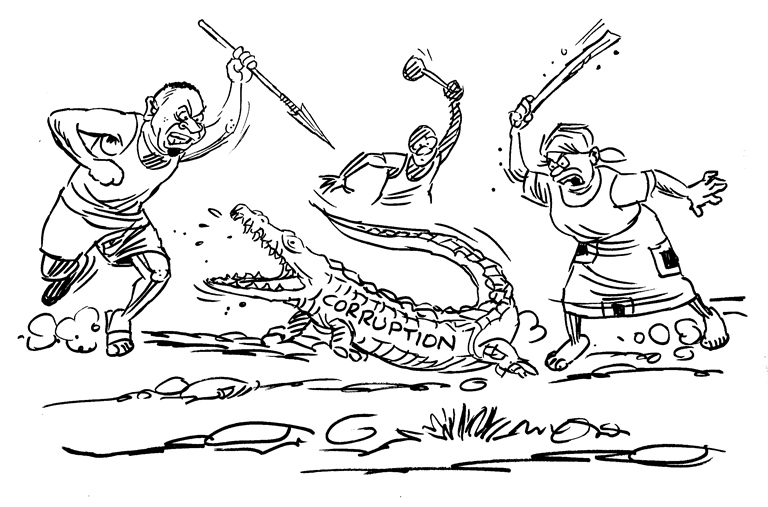Malawi can win the war– Part 2
Commemorating International Anti-Corruption Day
This week, we continue reflecting on the war against corruption in view of the International Anti-Corruption Day which falls on December 9 every year since 2003 when it was designated by the United Nations General Assembly following the adoption of the United Nations Convention Against Corruption (UNCAC).
As pointed out last week, the UNCAC sets obligations that member States must follow in their domestic resolve to fight corruption. Malawi is one of the member States and by signing up to the convention we are under obligation to join the rest of the world in ending corruption both at local and international levels.

This year’s International Anti-Corruption campaign will commence a countdown to the 20th anniversary of the UNCAC in 2023. Therefore, the theme selected to commemorate this year’s campaign and the forthcoming 20th anniversary of UNCAC is “UNCAC at 20: Uniting the World Against Corruption”.
In the column’s entry of the past week, we took some time to state that there must be some good steps that we have taken us a country in the fight against corruption which probably account for the improvement in the recent corruption perceptions rating and scores as reported in the 2021 Corruption Perceptions Index by Transparency International. These achievements must neither be ignored nor taken for granted. They are signs that despite the challenges we face in our resolve to fight corruption, we have not lost our campus bearings.
Therefore, as we continue to muse over positive things that can be appreciated I will pick political will as one essential weapon to bring to the anti-corruption war. Anywhere in the world, corruption thrives in an environment where those entrusted with power to govern over public interests are consciously complicit to criminal activities or feign powerlessness to take any action against crime in general or corruption in particular. However, when political leaders recognize the need to fight corruption and they take some steps to support anti-corruption measures, then half the job is done!
Why am I saying this? Politically, a commitment to fighting corruption is like working with a double-edged knife. You choose to cut with one edge whilst being exposed to being hurt by the other side. It only works when one is ready to sacrifice personal interests for the good of the country. It is not the easiest balance to achieve. Therefore, the fact that despite being risky we have still seen some strides towards addressing current and past corruption cases is encouraging. We must embrace this as an opportunity towards winning the war. We must encourage our leaders to do more within their power that can help and put Malawi on a better footing in tackling corruption.
Therefore, as we applaud our leaders for openly speaking against corruption and rallying people to do the same; while we express our gratitude to our leaders for providing more resources for fighting corruption and for facilitating processes to improve efficiency in handling of financial and economic crimes, we must be bold to point at the many other gaps that can only be ‘closed’ with taking necessary risks. Further, if we agree that fighting corruption is a risky endeavour then those that commit to join the war must prepare well to take a good dose of the risk pill.
My point here is that as we commemorate the Anti-Corruption Day on December 9, we must not be shy to celebrate the little achievements we have so far made as a country in our zeal to fight corruption. We must also applaud leaders who, despite associated risks, are not hesitant to take the right course. Above all, we must be proud of our present and past leaders for choosing to be part of the global anti-corruption initiatives by signing up and domesticating various international anti-corruption protocols, such as the UNCAC.



